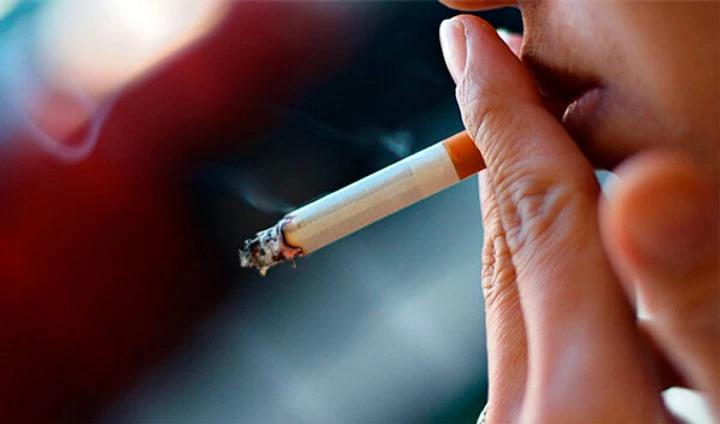
Oral Health And Overall Health
Maintaining good oral health as part of a total wellness plan is vitally important, given that oral health and effects on overall health are inextricably linked. With research pointing out connections between dental deficiencies and conditions like heart disease, arthritis, and even cancer, it is vitally important to prioritize your dental health as part of a total wellness plan.
Your lifestyle and habits play a role in your oral health as well. Consuming sugary and acidic food and drinks, drinking alcohol, and smoking all contribute to tooth decay and periodontal disease. When you combine unhealthy habits with poor hygiene, disaster can result.
What Is Gum Disease?
Gum disease, otherwise known as periodontal disease, is an infection of the gums, soft tissues and eventually, bone structures in your mouth. In severe cases, gum disease results in tooth loss and even changes your facial structure.
Gum disease begins when leftover particles of food and a sticky substance called plaque are allowed to sit on and around your teeth. Bacteria growth develops around these foreign substances and eventually makes its way underneath the gum line, causing inflammation and decay of supporting structures. As gum disease progresses, pockets of infection form below and throughout the gum line, causing gum tissue to pull away from and weaken teeth. In this more severe stage of periodontal decay, irreversible damage can destroy teeth and bone tissue. The most advanced stages of gum disease almost always result in the loss of teeth, bone, and other supporting structures around the jaw.
What Effect Does Smoking Have On Oral Health?
Smoking is one habit that significantly and adversely affects your teeth. Known to cause other major health problems, it is a contributor to some serious oral health issues as well.
Tobacco products compromise your oral health in many ways. The use of cigarettes and tobacco lower your body’s ability to fight off infections, which leave you susceptible to all sorts of disease and decay. Excess bacteria becomes produced during the act of smoking, and when your mouth can’t fight back, the formation of plaque and tooth decay can happen even faster.

What Other Effects Does Smoking Have on Teeth?
Tooth Discoloration--The use of tobacco products yellows teeth, leaving stains on enamel that is difficult, if not downright impossible, to remove without the help of dental professionals. The longer you smoke, the more buildup occurs, and at some point, staining will become permanent.
Halitosis--”Ashtray breath” is another unpleasant side effect of smoking. Cigarette residue remains in the mouth long after the act of smoking, which causes your breath to take on the characteristics of a cigarette. Overgrowth of bacteria is another common cause of bad breath. No amount of brushing, flossing, and mouth rinsing will remove the damage done through disease and decay; at best these things will temporarily masque the underlying problem. Prolonged periods of smoking can also inflame the salivary glands, causing painful swelling and malfunction.
Gum Disease--Smokers are twice as likely to develop gum disease as nonsmokers. If this statistic isn’t reason enough to quit, I don’t know what is! Risks increase with the amount of time spent smoking, and your mouth will become more resistant to corrective treatments with every cigarette smoked. Bacteria build up faster on teeth, causing infections in gum tissue. Eventually, the results are gum tissue pulling away from teeth and bone, exposing roots and weakening supporting structures in the mouth. Lifelong smokers eventually end up losing teeth due to the weakened condition of the mouth and its inability to heal itself.
More extended Periods Of Time Needed For Healing--Smoking increases health risks when undergoing procedures like oral surgery and tooth extraction, and it opens the door for infections to occur. More extended periods of time become needed for healing and recovery, and recovery becomes compromised with additional cigarette use. Dental implantation procedures for smokers are often unsuccessful due to the weakened condition of the bone structure. Vulnerable mouths are prone to complications that wouldn’t usually exist for non-smokers; it is time to consider quitting if your body cannot properly heal itself.
Oral Cancer--One of the most severe conditions a smoker can develop is oral cancer. Among an estimated 50,000 people diagnosed with oral cancer each year, over 80 percent of them have confirmed smokers. Exponential risks of cancer increase when smoking gets combined with heavy drinking. Oral diseases, including cancer, can become identified by white or red patches in the mouth, accompanied by difficulty breathing and swallowing. As oral cancer spreads, it can have adverse effects on the jaw, face, and ears as well. Upon discovering any of these signs or symptoms, it is essential that you make an appointment with a doctor to effectively diagnose and treat your condition.
Stop Decay In Its Tracks
While a dentist can put together a treatment plan to care for and treat your symptoms, the only way to prevent periodontal disease and decay is to stop smoking altogether. Smoking significantly accelerates the development of dental issues; talk to your dentist if you are a smoker or have plans to quit. They will help you to develop a plan that meets your unique needs.
Dr. Gordon Krueger and his team of professionals are trained to handle even the most complex dental care needs. Their goal for you is your total wellness, and they will do what it takes to restore and maintain your dental health. With a combination of excellent patient education programs and high-quality service, you can rest assured that all aspects of your dental health will be addressed and corrected. Contact https://www.gordonekruegerdds.com today for more information and to set up an appointment. Taking control of your oral health once more can be challenging; allow us to be a support for you on your road to restoration and health.








